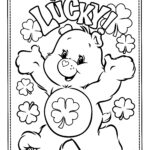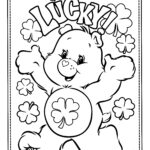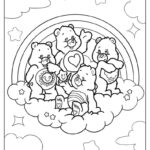The moniker “Giants,” associated with a prominent Major League Baseball franchise, arose from an observation made in 1885 by Jim Mutrie, then-manager of the New York Gothams. Following a particularly forceful victory, Mutrie allegedly exclaimed, “My big fellows, my giants!” This spontaneous declaration, highlighting the team’s imposing stature and performance, resonated with the public and the press, leading to the team’s eventual adoption of the name.
The selection of this particular label was significant for several reasons. It conveyed an image of strength and dominance, qualities desirable for any sporting organization. Furthermore, it offered a memorable and easily identifiable brand for the team, aiding in fan engagement and marketing efforts. The name’s historical context, originating from a genuine moment of admiration, added a layer of authenticity to the team’s identity, fostering a stronger connection with its supporters.
The subsequent relocation of the team to the West Coast did not alter the core identity established in New York. The enduring presence of the “Giants” name reflects the continued legacy and established brand value associated with the franchise. This history informs the team’s current standing and its ongoing relationship with its fan base.
1. Manager’s exclamation
Manager Jim Mutrie’s spontaneous exclamation, “My big fellows, my giants!”, serves as the pivotal origin point for the San Francisco Giants’ name. This instance is not merely anecdotal; it represents the direct catalyst for the team’s identity transformation.
-
Impression and Adoption
The power of Mutrie’s statement lies in its immediate impact. It encapsulated the team’s physical presence and dominating performance in a single, memorable phrase. The press and public quickly adopted “Giants” as an alternative name, reflecting its resonance with the team’s image.
-
Displacement of Previous Nomenclature
Prior to Mutrie’s remark, the team was known as the Gothams. The rapid adoption of “Giants” demonstrates the effectiveness of a strong, descriptive label. The new name better conveyed the team’s perceived attributes, leading to a complete replacement of the older designation.
-
Legacy and Brand Identity
The manager’s exclamation became a cornerstone of the team’s brand identity. Even with the subsequent relocation to San Francisco, the name persisted, illustrating its enduring appeal and recognition. It signifies a direct link to the team’s foundational history and values.
The persistence of the name, derived from Mutrie’s spontaneous assessment, highlights the importance of capturing a team’s essence in a clear, concise, and impactful manner. The transition from Gothams to Giants exemplifies how a well-chosen moniker can shape public perception and establish a lasting legacy.
2. Enduring Brand
The “Giants” moniker, born from Jim Mutrie’s spontaneous declaration, evolved from a descriptive nickname into an enduring brand. The team’s name’s origin, tied to a manager’s observation of physical dominance, became a central element of the team’s identity. The brand’s longevity stems from the name’s simplicity, memorability, and the positive associations of strength and resilience. This exemplifies how a seemingly fleeting moment can solidify into a valuable and lasting brand asset. The decision to maintain the name through periods of relocation and organizational change demonstrates a conscious effort to leverage pre-existing brand equity.
Maintaining the “Giants” name facilitated continuity across geographical shifts. The transition from New York to San Francisco risked alienating existing fans and hindering the establishment of a new fan base. Retaining the established identity of “Giants” minimized this risk, providing a consistent brand that resonated with fans regardless of location. The “Giants” brand, reinforced through consistent performance and community engagement, became a powerful identifier, surpassing mere geographical boundaries. This consistent application of the brand across generations fosters loyalty and simplifies marketing efforts, providing a clear and recognizable image.
In summary, the enduring nature of the “Giants” brand is directly attributable to the compelling nature of its origin. Manager Mutrie’s observation, transformed into the team’s name, established a foundational identity that transcended time and location. This illustrates the significance of selecting a moniker that resonates deeply, as it can contribute directly to long-term brand recognition and fan loyalty. Ignoring this inherent brand recognition would have required significant investment to establish a new identity, proving the value and impact of a well-chosen and consistently applied team name.
Insights Regarding the San Francisco Giants Name Origin
A thorough comprehension of the San Francisco Giants name origin provides valuable context for understanding the team’s historical identity and brand resonance. The following points offer critical insights related to this topic.
Acknowledge the Significance of Jim Mutrie’s Statement: Mutrie’s exclamation was not merely a casual remark, but the defining moment that shaped the team’s identity. Any examination of the team’s name must place this event at its center.
Recognize the Rejection of “Gothams”: The rapid adoption of “Giants” signified a clear preference for a name that better represented the team’s image. This shift demonstrates the impact of effective branding and the importance of selecting a moniker that resonates with the public.
Understand the Power of Memorability: The term “Giants” is inherently simple and memorable. This ease of recall contributed to its widespread adoption and its enduring relevance throughout the team’s history.
Evaluate the Impact of Relocation: The decision to retain the “Giants” name during the move to San Francisco illustrates the team’s commitment to preserving its established brand equity. This continuity helped maintain fan loyalty and ease the transition to a new market.
Consider the Positive Connotations: The word “Giants” evokes notions of strength, power, and dominance. These positive associations have contributed to the team’s overall brand image and have reinforced its appeal to fans.
Analyze the Interplay of History and Identity: The San Francisco Giants name origin is inextricably linked to the team’s historical narrative. By understanding this history, one gains a deeper appreciation for the team’s enduring identity and its connection to its fan base.
The San Francisco Giants name origin serves as a valuable case study in the importance of effective branding and the enduring power of historical narrative. By appreciating these key insights, one can gain a more comprehensive understanding of the team’s identity and its sustained appeal.
This understanding lays the groundwork for a more nuanced discussion of the team’s legacy and its continued relevance in the world of professional baseball.
Conclusion
The preceding exploration of “san francisco giants name origin” clarifies its importance to the franchise’s enduring identity. Manager Jim Mutrie’s spontaneous declaration initiated a transformation from the less memorable “Gothams” to the evocative “Giants,” a name that resonated with the team’s perceived strength and stature. This branding decision, solidified by its continuation through relocation, demonstrates the lasting impact of a well-chosen moniker and its significance in shaping public perception.
The history embedded within the San Francisco Giants name contributes to the team’s legacy and fan loyalty. Further research into the team’s marketing strategies and its relationship with its fanbase may offer even greater understanding of the complex dynamics between historical origins and contemporary brand identity. The Giants’ narrative stands as a testament to the enduring value of a name that encapsulates both a moment in time and the ongoing aspirations of a sporting institution.









